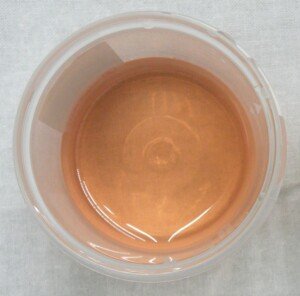Red Urine Has Many Causes: Some Life Threatening, Some Harmless
Red urine sometimes means blood in the urine, but sometimes it doesn’t.
Either way, you need to find out the cause of red or rust colored urine.
Some causes of red/blood in the urine are serious, including cancer; while some causes are quite benign (harmless).
These include repeated jarring from exercise. This happened to me some years ago when I was pedaling super furiously on a stationary bike, jostling it around: equipment I normally didn’t use.
A visit to the restroom right after revealed blood stains on my panties, but no blood or red in the urine, nor any red staining after that visit.
“Any trauma, regardless of how seemingly trivial, may cause bleeding within the urinary tract,” says Andrew Stephenson, MD, Section Chief and Director, Urology Oncology; Professor (PAR), Department of Surgery, Division of Urology, Rush Medical College.
“Gross (visible) blood in the urine after trauma is a reason to seek medical attention.”
What do these symptoms really mean?
Dr. Stephenson explains, “Microscopic blood cells in the urine is very common and may not be associated with any disease process within the urinary tract — about 5-10 percent of patients with microscopic hematuria (blood in urine) will have an identifiable cause (e.g., kidney stone, bladder cancer, etc.).
“Gross [visible] blood in the urine is usually associated with urinary tract pathology (e.g., kidney, bladder or prostate disease) or stones or infection.

Visible blood in urine can cause a tea or cola color, as well as an orange-red color. Credit: James Heilman, MD/CreativeCommons
What percentage of people who have kidney/bladder/prostate cancer, have this symptom?
“Blood in the urine from prostate cancer is uncommon in the absence of advanced disease,” says Dr. Stephenson.
“Most patients with bladder or kidney cancer will have microscopic blood cells present in the urine.”
Is this a very rare, or very common (or some range in between) symptom of kidney/bladder/prostate cancer?
“Three to five red blood cells per high-powered field on microscopic examination of the urine on more than one occasion is an indication for further investigations.”
How often or what percentage of diabetics have the symptom?
“Very uncommon in the absence of infection.”
Is this a common symptom of kidney stones?
“Yes. Also, abdominal pain or flank pain will be present if the stone has passed from the kidney into the ureter.”
More Additional Causes
Red Color but no Blood
Porphyria — a skin and nervous system disease
Beets, blackberries, rhubarb pie
Ex-lax and other laxatives
Some prescription drugs including antipsychotics (Thorazine)
The anesthetic Diprivan
Chronic poisoning from mercury or lead

Urine color affected by beets. Jmarchn/CC BY-SA 3.0
Blood
Strenuous exercise in addition to fierce stationary bike pedaling, such as distance running and jumping drills.

Distance runners are most at risk, but those who do any strenuous exercise involving the lower body can have urinary bleeding.
Urinary tract infections
Cancer of the kidney or bladder (occasionally)
Visible hematuria in children can be caused by a kidney inflammation from a viral or bacterial infection.
See a doctor when:
1 Two or more incidents of the symptom occur, regardless of time lapse in between.
2 Visible hematuria lasting beyond 24 hours
3 Urine color changes are not triggered by medications, dyes or food.




























